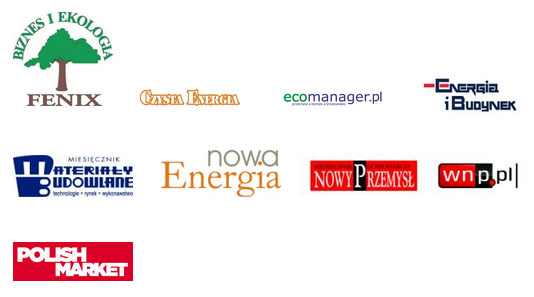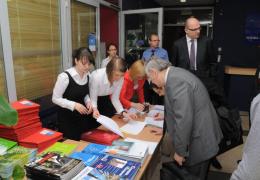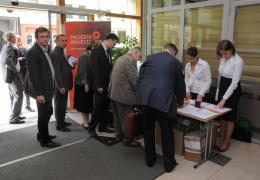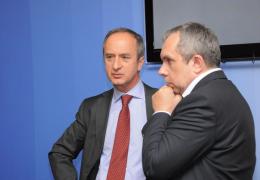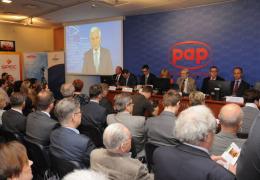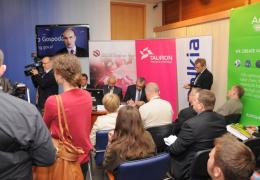On the 28th of April took place the debate:
YEAR OF ENERGY.
THE ENERGY DIMENSION OF THE POLISH PRESIDENCY OF THE EU
28 April 2011 (Thursday), 11.00 a.m.,
PAP Press Centre, ul. Bracka 6/8, Warsaw
Every six months another EU member state takes over the Presidency of EU, i.e. oversees the works of the Council of the European Union. During this time, the member state in question becomes the host of the majority of EU events and plays a key role in all fields of the EU’s activity.
On 1 July 2011, Poland will take over the Presidency of the Council of the European Union.
– If Poland only manages to recover a little from the Euro crisis, 2011 will be the year of energy – the Polish secretary of state for European affairs, Mikołaj Dowgielewicz, highlighted in one of his interviews. For this reason, our priority for this period should be to increase solidarity within the EU – construed inter alias as taking the form of the internal energy policy. Our debate, which will fit in with discussions as to the energy-related dimension of the Polish Presidency, is aimed at turning attention inter alias to changes occurring on the Polish and European energy market.
Poland is a country that has the greatest potential in respect of energy savings of all of the EU member states – our economy is 2.67 times more energy-intensive that the economies of the EU-15. For this reason, in the light of international discussions on safe and efficient energy, we will try to concentrate on modern technologies aimed at increasing energy efficiency and the reduction of greenhouse gas emissions, as well as energy security. We will also focus on the diversification of the supply of energy resources to this part of Europe. Poland wants to establish bilateral cooperation (within the framework of the energy policy) between member states, in order to create a regional development strategy in relation to, for example, the Vysehrad Group or cooperation in the Baltic region. During the debate, we will not be afraid to touch upon difficult issues. We will outline the concept of domestic offset and discuss its significance as a solution allowing for the achievement of reductions in areas and regions where the costs thereof are lowest. In addition, this mechanism will allow for the flexible transfer of reductions obtained in the non-ETS sector to the ETS sector. We will also talk of carbon labelling based on carbon footprints. The provision of information on products would allow consumers to make informed decisions and could become a point to note, for example in the context of procurement proceedings. Countries placing carbon labels on their products include the Scandinavian states. Finally, we will also discuss the topic of smart grids, i.e. innovative solutions relating to electricity networks.
In the debate took part politicians, academics and businesspeople. Our speakers were:
- Prof. Krzysztof Żmijewski , Secretary General of the Public Board of the National Programme for the Reduction of Emissions,
- Janusz Reiter, Chairman of the Working Group for Strategic Communication of the Public Board of the National Programme for the Reduction of Emissions
- Konrad Niklewicz, Spokesman of the Polish presidency in the EU
- Radosław Dudziński, Vicechairman of the Board, PGNiG S.A.
- Marek Maniecki, Chairman of the Energy Committee of the Polish Chamber of Information Technology and Telecommunications
- Krzysztof Nosal, Director of Environment, Arizona Chemical
- Herbert Leopold Gabryś, Chairman of the Standing Committee of the Polish Chamber of Commerce
- Adam Kania, Chief Energy Engineer, Zakłady Azotowe Puławy S.A.
- Romuald Talarek, Chairman of the Polish Steel Association
- Grzegorz Onichimowski, Chairman of Polish Power Exchange SA
Prof. Jerzy Buzek, Chairman of the European Parliment and Mr. Marcin Korolec, Undersecretary of State in the Ministry of Economy could not participate personally in the debate but they presented their viewpoints by means of a video presentation.
Media coverage:
- Debate on energetic dimension of the Polish presidency in the UE
- Prof. Buzek - energy policy as one of priorities during Polish presidency in the UE
- Debate "Year of Energy". Online transmission
- Żmijewski: the Energy-Climate Package is hypocricy of the EU
STRATEGIC PARTNERS:
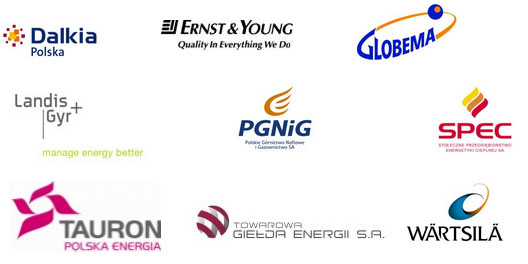
EVENT PARTNERS:
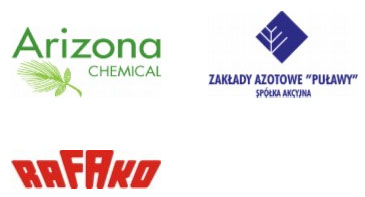
MEDIA PARTNER:

MEDIA PATRONAGE :
